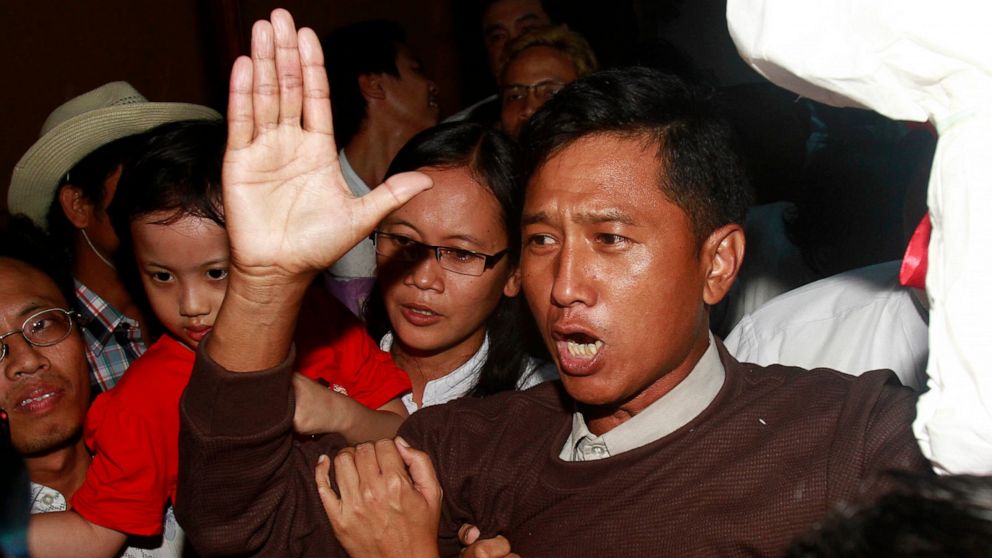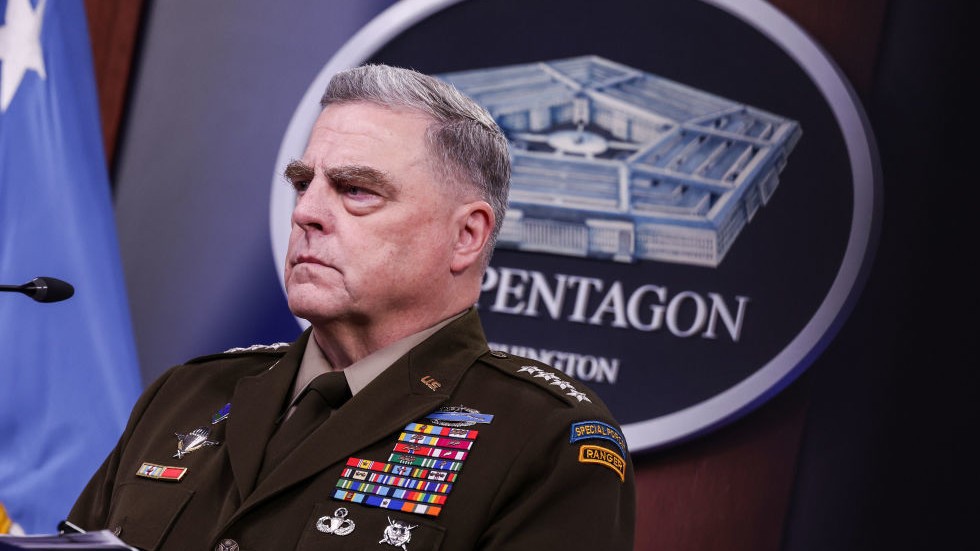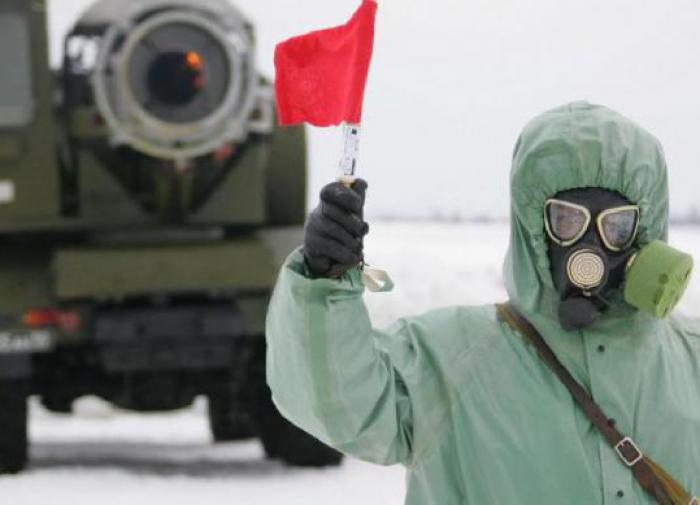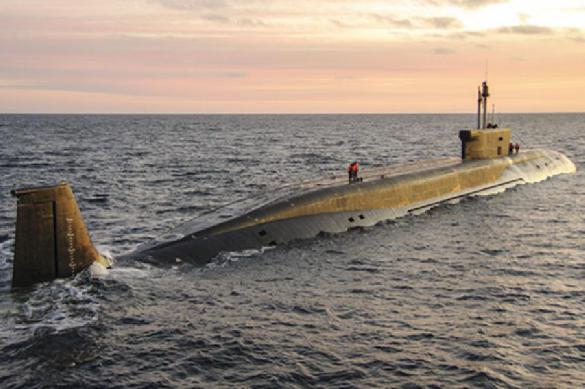[ad_1]

BRUSSELS, Jan 25 (IPS) – On 28 October, President Gotabaya Rajapaksa appointed the militant Buddhist monk Galagoda Aththe Gnanasara to move a presidential job power on authorized reforms, surprising many in Sri Lanka and past. Gnanasara is the general public face of the nation’s main anti-Muslim marketing campaign group, Bodu Bala Sena (Military of Buddhist Energy, or BBS). He’s broadly accused of inciting inter-communal violence, together with two lethal anti-Muslim pogroms in June 2014 and March 2018.
Convicted of contempt of court docket for a separate incident, Gnanasara was sentenced to 6 years in jail however acquired a presidential pardon from Rajapaksa’s predecessor, Maithripala Sirisena, in his last months in workplace. The act of clemency got here after intensive lobbying by nationalist monks and an upsurge of anti-Muslim sentiment within the aftermath of the 2019 Easter bombings, a collection of assaults on church buildings and vacationer resorts carried out by a small group claiming allegiance to the Islamic State, or ISIS.
Observers throughout the Sri Lankan political spectrum, together with some Buddhist nationalists, expressed dismay – at instances, outrage – that the president might identify somebody whose disrespect for the legislation and hostility to non-Sinhala Buddhist minorities are a matter of public file to move a fee ostensibly designed to stop “discrimination” and guarantee “humanitarian values”. Critics have known as the appointment “irrational” and even “incomprehensible”.
In reality, it’s something however. The Rajapaksa authorities is deeply unpopular, together with amongst massive sections of its core Sinhala Buddhist constituency, and determined to divert public consideration from its financial mismanagement.
There may be thus a transparent if deeply unlucky logic for it to convey again to the fore the best-known proponent of a theme that was key to getting the president elected: concern of Muslims as a supply of “non secular extremism”.
Whereas it was in a single sense shocking to see the open affirmation of Rajapaksa’s lively help for the controversial monk after a few years of distancing himself from Gnanasara, tight hyperlinks between Sri Lankan authorities officers and the Buddhist clergy are nothing new. The 1978 structure offers Buddhism the “foremost place” within the nation’s non secular panorama and the state the obligation to “defend” it.
There may be nothing comforting on this historical past, nevertheless. The Sinhala Buddhist majoritarian nature of the Sri Lankan state – ie, the extent to which the state represents and enforces majority pursuits on the expense of the rights of different communities – has had disastrous results on the nation’s ethnic and non secular minorities.
The state’s transition from being structurally discriminatory to overtly hostile towards Tamils (who’re Hindu or Christian) – a course of fed by Sinhala politicians’ warnings concerning the risk the neighborhood allegedly posed – finally led to 3 many years of devastating civil struggle.
Throughout that interval, from 1983 to 2009, terrorist assaults by the Liberation Tigers of Tamil Eelam supplied some goal grounds for Sinhalese fears, reinforcing the narrative that almost all neighborhood was beneath risk. Now, there may be rising cause to concern that this sample could also be repeating itself within the Sri Lankan state’s interactions with its Muslim residents.
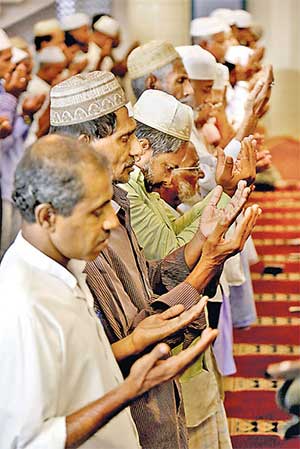
The Rise of Anti-Muslim Politics
In November 2019, Gotabaya Rajapaksa’s profitable marketing campaign for Sri Lanka’s presidency made a lot of the slogan “one nation, one legislation”, which had gained recognition after the 2019 Easter bombings. Its ambiguity was helpful: at one degree, it could possibly be interpreted as merely asking for uniform therapy of all residents and resonated with voters offended on the impunity with which politicians and their highly effective supporters are in a position to violate the legislation.
However its discriminatory implication was additionally apparent from the beginning, hinting at a must “defend” the Buddhist nature of state and society by eliminating the separate guidelines and therapy that many Sinhalese consider Muslims use to realize financial and political benefits.
Many Sinhalese have for years held the view that Sri Lankan Muslims are extra involved with advancing their very own pursuits than working for the bigger nationwide curiosity. Even through the civil struggle, when Muslims remained overwhelmingly loyal to the state and performed a crucial function in combating the Tamil insurgency, one recurrently heard complaints in Sinhalese (in addition to Tamil) circles that they had been exploiting the battle for private and collective financial profit.
As a result of Muslim lawmakers held the steadiness of energy in parliament between the 2 main Sinhala-dominated events, they had been generally accused of utilizing their “kingmaker” function to realize undue benefits for his or her co-religionists.
By the early 2000s, many Sinhalese had additionally begun to precise discomfort on the rising numbers of Muslims, particularly ladies, sporting non secular apparel and the rising focus amongst Muslims on practices meant to exhibit non secular piety. Many interpreted this development as Muslims intentionally distancing themselves from the bulk.
With the arrival of BBS ultra-nationalists on the political scene in late 2012 – whose message was amplified by the smaller militant Sinhalese teams Sinhala Ravaya and Ravana Balakaya – the general public portrayal of Sri Lankan Muslims quickly took on extra overtly hostile types. (The last decade earlier had seen organised Buddhist activism, at instances violent, directed towards the rising variety of evangelical church buildings; strain on Christian evangelicals continues at this time, although not on the size of anti-Muslim campaigns.)
On the peak of its affect, in 2013 and 2014, BBS dominated information protection and helped set the political agenda via rallies, speeches and vigilante actions geared toward containing the risk Muslims’ alleged “extremism” posed to Sri Lanka’s Sinhala Buddhist character. The vary of allegations promoted by BBS and like-minded organisations, typically via on-line hate speech, was broad and shifting.
They claimed that inhabitants progress meant that Muslims would ultimately overtake the Sinhalese majority; that Muslim-owned companies had been secretly distributing merchandise to sterilise Sinhalese in an effort to hold their numbers down; and that the system of halal meals labelling was encroaching on the non secular rights of others and covertly funding Islamist militants.
Extra typically, conservative non secular practices adopted by rising numbers of Muslims in a quest for larger piety had been learn by ultra-nationalists as proof of rising “extremism” that threatened different communities. These expenses had been based mostly on both outright falsehoods or malicious misinterpretations of complicated social and non secular developments amongst Sri Lankan Muslims.
The anti-Muslim rhetoric helped set off inter-communal violence late within the presidency of Gotabaya’s brother Mahinda Rajapaksa (2005-2015). These years noticed a collection of assaults on Muslim-owned companies (with many alleging that Sinhala enterprise rivals had been backing the attackers) and disruption of political conferences held by anybody daring to problem the Buddhist militants, towards the backdrop of mass rallies denouncing the alleged risk posed by Muslims’ “extremism”.
In a June 2014 speech within the city of Aluthgama, Gnanasara declared to a big crowd: “This nation nonetheless has a Sinhala police. A Sinhala military. If a single Sinhalese is touched, that would be the finish of all of them ”. Minutes later, a whole bunch of his supporters marched via a close-by Muslim neighbourhood, sparking two days of devastation that left three Muslims and one Tamil safety guard useless. Sinhala rioters, lots of them introduced in from outdoors the world, focused mosques and Muslim-owned retailers and houses for arson and destruction. The police had been broadly accused of standing by and even aiding the rioters.
Regardless of authorities denials, many impartial observers informed Disaster Group on the time that the Mahinda Rajapaksa administration was actively supporting the BBS and different anti-Muslim campaigns. They suspected the federal government of executing an electoral technique designed to consolidate the Sinhala vote behind the federal government, which projected itself because the defender of Sinhalese Buddhist identification. The looks of Gotabaya Rajapaksa, then defence secretary, at a BBS occasion in March 2013, and his recognized connections with senior monks related to the group, fuelled the hypothesis.
Extra tangible proof of state backing lay in the truth that police gave BBS and like-minded teams permission to carry rallies at a time when authorities critics weren’t allowed to take action. Police took no obvious motion, furthermore, to stop or examine repeated vigilante raids on Muslim-owned retailers or violent efforts to silence critics of militant Buddhist organisations.
Nor was anybody prosecuted for any of those crimes. A number of sources informed Disaster Group that Senior Deputy Inspector Basic of Police Anura Senanayake, who labored carefully with Gotabaya on the time, led efforts to influence victims to not press expenses. Following Mahinda’s defeat within the January 2015 election, officers introduced they’d proof of shut ties between Buddhist militants and navy intelligence items, confirming what Muslim neighborhood leaders had beforehand informed Disaster Group.
With the 2015 election of President Maithripala Sirisena, representing a united opposition decided to finish the Rajapaksas’ rule, the technique of demonising Muslims for electoral ends appeared to have failed. Sirisena’s yahapaalanaya (good governance) coalition received partly via robust Muslim and Tamil backing based mostly on its guarantees to finish the BBS-led reign of terror.
However whereas the brand new administration stopped tacitly encouraging anti-Muslim violence and hate speech, it lacked the political braveness – and presumably the required help throughout the police and intelligence businesses – to crack down on Buddhist militant teams.
After a short lull in anti-Muslim activism, 2016 and 2017 noticed a collection of small assaults on Muslim companies by unknown assailants, inspired by sustained hate speech campaigns in conventional and social media, backed by efficient native networks.
In February 2018, Buddhist militants in Ampara broken a mosque and Muslim-owned retailers because the police regarded on, following social media rumours {that a} Muslim-owned restaurant had injected sterilising chemical substances into Sinhala clients’ meals. The next month, 4 days of anti-Muslim rioting shook the central hill district of Kandy, sparked by the demise of a Sinhala man assaulted weeks earlier by 4 Muslim males.
Gnanasara visited the sufferer’s household and later joined different militant leaders to handle a crowd of protesters simply hours earlier than the riots started. Movies later appeared to indicate native politicians from the Rajapaksa household’s get together, the Sri Lanka Podujana Peramuna, collaborating within the mayhem. Two individuals had been killed, many injured, a whole bunch of Muslim-owned homes and retailers destroyed, and at the very least a dozen mosques broken. The violence was extreme sufficient for President Sirisena to declare a state of emergency, throughout which the military ultimately introduced issues beneath management.
President Sirisena, Prime Minister Ranil Wickremesinghe and senior ministers all condemned the violence and promised powerful motion in response. However regardless of a whole bunch of arrests, together with of a number of distinguished Buddhist activists, nobody was held accountable for these incidents, which included well-documented assaults on Muslims by safety forces, with eyewitnesses telling Disaster Group of quite a few circumstances of complicity between the police and Buddhist rioters.
In August 2018, courts ultimately convicted Gnanasara of contempt of court docket and felony intimidation of a distinguished Sinhala human rights activist. Many hailed his six-year sentence as a landmark, although Gnanasara has confronted no jail time for assaults on or different actions towards Muslims, and a lot of the slow-moving felony circumstances towards him in decrease courts have now been dropped.
The partial victory over impunity was, nevertheless, short-lived. In 2019, within the aftermath of the horrific Easter Sunday suicide assaults, the Sri Lankan state for the primary time adopted insurance policies that immediately discriminated towards the Muslim minority. With tensions working excessive, President Sirisena’s authorities used the post-bombing state of emergency to ban the niqab, or full face masking, invoking nationwide safety issues (the ban was rescinded in August 2019 when the emergency was lifted).
It additionally enacted new guidelines for presidency workers that, in impact, barred the full-length abaya, worn by many Muslim ladies lecturers, particularly within the Japanese Province (these had been later withdrawn after being challenged by Sri Lanka’s Human Rights Fee). Anxious to salvage his sinking political fortunes because the November 2019 presidential election drew close to, Sirisena then pardoned Gnanasara.
The nationalist monk instantly leapt into the political fray, becoming a member of his friends in protests demanding the resignation of Muslim ministers Rishad Bathiudeen and Azath Salley, accusing them – up to now with out convincing proof – of involvement within the Easter assaults.
For a lot of Sinhalese, particularly Christians, in addition to some Tamils, the Easter assaults appeared to substantiate earlier warnings of a rising risk from “Islamic extremism”. Authorities responded to those fears within the assaults’ aftermath with what gave the impression to be the criminalisation of Muslims’ on a regular basis practices.
Police arrested greater than two thousand Muslims beneath emergency and terrorism legal guidelines, in all however a number of circumstances with no proof of hyperlinks to the bombings or any threatening behaviour; they picked up many merely for having a Quran or different non secular supplies in Arabic script at residence.
After the Easter bombings, the beforehand failed electoral technique of shoring up Sinhala help via vilification of Muslims gained new traction. Gotabaya introduced his candidacy simply days after the assaults, promising to eradicate new types of religiously motivated terrorism simply as he had beforehand destroyed the Tamil Tigers when he was defence secretary.
On the polls, Gotabaya acquired overwhelming help from Sinhala voters, together with many Catholics who had not beforehand backed him. The brand new president himself appeared to acknowledge the technique’s success, declaring in his inaugural speech given in entrance of a Buddhist shrine: “I knew that I might win with solely the votes of the Sinhala majority”.
Rising Tensions
Inside months of taking workplace, Gotabaya deepened the state’s hostility towards Muslims on a number of fronts. His administration used COVID-19 lockdowns and advert hoc village-level quarantines to harass the neighborhood, which pro-government media shops accused of spreading the virus. Extra damaging was the federal government’s determination on 1 April 2020 to ban burial of anybody even suspected of getting died of the illness.
Introduced the day after the primary Muslim sufferer died, the choice was justified by a declare – shortly rejected by the World Well being Organisation and Sri Lankan specialists – that the virus might unfold from interred stays via the groundwater. The coverage, which stayed in place for practically a 12 months, had a profoundly merciless impact on Muslim households, who had been pressured to cremate their family members’ our bodies towards their non secular convictions.
It was rescinded on 26 February, after a worldwide advocacy marketing campaign that sought to mobilise the Organisation of Islamic Cooperation and member states of the UN Human Rights Council, which was attributable to assess Sri Lanka’s human rights file weeks later. Even after the ban was lifted, nevertheless, Sri Lanka has allowed burials in just one distant location, closely guarded by the navy – a limitation that continues to impose hardships on Muslims, in addition to the smaller variety of Christians and Hindus who select to bury their useless.
On 12 March, the federal government additionally introduced new laws for “deradicalisation” of these “holding violent extremist non secular ideology”. Issued beneath the draconian Prevention of Terrorism Act, the foundations allowed the defence ministry to detain anybody accused of inflicting “acts of violence or non secular, racial or communal disharmony or emotions of ailing will or hostility between totally different communities or racial or non secular teams” for as much as eighteen months, with none judicial course of or oversight.
Human rights attorneys and Muslim leaders shortly filed swimsuit within the Supreme Courtroom, which in August put the measures on maintain till it decides the case. Even when the court docket quashes the laws, nevertheless, the federal government’s clear intention to determine a “deradicalisation” program leads some to consider it might enshrine related powers in revisions to the counter-terrorism legislation it’s presently getting ready.
The laws had been issued with out proof that any vital variety of Muslims in Sri Lanka posed a risk to safety or would profit from a program alongside the contemplated strains. They did, nevertheless, supply the federal government a face-saving approach to launch a few of the a whole bunch of Muslims arrested after the Easter assaults who’re nonetheless detained, in some circumstances with out cost, by placing them right into a “deradicalisation program”.
Holding massive numbers of Muslims in particular camps for an additional 12 months or extra, because the proposed deradicalisation program would do, nevertheless, would danger contributing to a collective sense of humiliation and anger that might itself push some towards “violent extremist non secular ideology”. As Muslim activists recurrently warn, the danger is especially excessive so long as the federal government’s strategy leaves no room for the chance that Buddhists might promote their very own types of violent extremism.
Overlapping enquiries into the Easter bombings have, in the meantime, been politicised in ways in which seem geared toward maintaining alive fears of Muslims as a supply of insecurity. As a part of its broader assault on the independence of police and courts, Gotabaya’s authorities changed all the workforce trying into the bombings quickly after coming to energy, arrested the chief investigator, Shani Abeysekera, on what seem like trumped-up expenses, and demoted different officers. One other key investigator fled the nation fearing arrest.
The administration has additionally refused to behave on the important thing suggestions of a separate fee of enquiry – appointed by President Sirisena – into the bombings. These included, amongst others, prosecuting Sirisena, who’s now a key authorities ally, and banning BBS, whose anti-Muslim incitement the fee discovered had contributed to the bombers’ flip to violence in a technique of “reciprocal radicalisation”.
In what appears to be an try at maligning Muslim leaders, the Gotabaya administration additionally detained or charged a variety of distinguished Muslim personalities, seemingly with out credible grounds. Ex-minister Bathiudeen faces terrorism and extremism expenses – regardless of having been cleared of hyperlinks to the Easter bombings by the presidential fee of enquiry.
On 2 December, a court docket launched one other Muslim lawmaker, Salley, after he had spent eight months in jail, citing lack of proof. The prosecution of human rights lawyer and political activist Hejaaz Hizbullah for his supposed hyperlinks to the Easter terrorist assaults additionally seems to be groundless, relying partly on coerced testimonies.
The federal government’s strategy has angered Sri Lanka’s Catholic management, which has accused it, and the president himself, of masking up the “masterminds” behind the Easter bombings. Church leaders recommend that the federal government has been defending Sirisena and refusing to comply with up on proof uncovered by the presidential fee that suggests navy intelligence officers had contact with a few of the bombers earlier than and on the day of the assault.
Backed by Pope Francis, Colombo’s archbishop Cardinal Malcolm Ranjith has known as for a world investigation. Following an October on-line assembly that aired church criticisms, the police summoned one of many cardinal’s high advisers for 3 days of questioning.
A Harmful Slogan
Stung by rising criticism of its dealing with of the Easter bombings investigation, and going through a grave financial disaster that has badly broken its fashionable help, together with amongst Sinhala Buddhists, the Rajapaksa authorities signalled with Gnanasara’s appointment that it’s returning to the “one nation, one legislation” agenda that helped get it elected.
Given the idea’s vagueness, nevertheless, and the deep contradiction between it and the express privileges that Buddhism enjoys beneath the structure, nobody is certain what Gnanasara’s job power will really do. Whereas it could actually, in precept, look into the practices of all non secular and ethnic teams, few observers doubt that it’ll focus its consideration on the Muslim minority.
It’s anticipated to contemplate reforms to the madrasa schooling system – Muslim leaders have submitted proposals to the federal government – in addition to authorities plans to manage actions in mosques, monitor the import and translation of the Quran and different Arabic texts, ban the niqab and burqa, and outlaw cattle slaughter (an trade dominated by Muslims and sometimes criticised by Buddhist activists).
Gnanasara’s job power additionally appears sure to weigh in on long-discussed adjustments to the Muslim Marriage and Divorce Act, a brand new model of which the cupboard authorized in August. Over the previous years, Muslims and others have bitterly debated potential reforms to the Act, with sophisticated overlap between human rights and feminist critiques of the laws as patriarchal and oppressive and Buddhist nationalist criticisms of Muslims having their very own marriage and household legislation.
Sri Lankan legislation enshrines distinct traditions of household legislation for Sinhalese in Kandy and Tamils in Jaffna, in addition to for Muslims, however this Act has are available in for specific criticism on account of permitting polygamy, setting no minimal age for marriage, requiring no specific consent from the bride and establishing all-male courts to listen to divorce circumstances.
However Gnanasara’s involvement in authorities efforts to change it should seemingly weaken the leverage of Muslim feminist reformers pushing to strengthen ladies’s marriage and divorce rights and strengthen resistance to vary from the all-male communal management, which has argued that feminist criticisms of the legislation, in impact, endorse Buddhist militant portrayals of Islam as a backward faith.
It stays to be seen, nevertheless, how far the federal government will enable or encourage Gnanasara to go. On the one hand, Buddhist nationalists seem to see “one nation, one legislation” as a name for “a single legislation” that offers pre-eminence to Buddhist establishments whereas denying these of different religions official recognition.
Some high officers clearly see issues the identical manner: it was notably revealing that Gnanasara’s appointment was adopted three weeks later by a collection of large-scale Buddhist non secular ceremonies within the sacred metropolis of Anuradhapura, that includes the president, cupboard and high navy brass alongside the Mahanayakes, Sri Lanka’s strongest Buddhist clerics.
The 2 days of ceremonies had been grand shows of the federal government’s challenge of extra totally integrating state, navy and Buddhist clergy on the premise of an overtly Sinhala nationalist political imaginative and prescient. However, in a December assembly, International Minister G.L. Peiris assured ambassadors from Muslim nations that Sri Lanka would “proceed to retain” “private legal guidelines particular to Muslim, Kandyan and Tamil communities”.
Furthermore, up to now, Colombo has fastidiously calibrated its anti-Muslim insurance policies in order to maintain the backing of its hardline Buddhist nationalist supporters and win a level of worldwide help for serving to “counter violent extremism”, whereas sustaining good relations with financial and political allies within the Muslim world.
The federal government might as but don’t have any exact agenda for the duty power, however given Gnanasara’s charisma and theatrical abilities, he’s a probably highly effective, and harmful, asset for reframing political debate, deepening divisions between Tamils and Muslims and presumably even frightening a brand new spherical of anti-Muslim unrest. He has been central in propagating Buddhist nationalist ideology over the past decade.
There may be little that these outdoors of Sri Lanka, involved concerning the rule of legislation, non secular concord and political stability, can do immediately to handle these dynamics. International companions of the Sri Lankan state, can, nevertheless, be extra cautious about not inadvertently strengthening them.
Following the Easter bombings, a variety of latest programming by international donors has targeted on counter-terrorism, stopping “violent extremism” and constructing “social cohesion”. Within the phrases of 1 activist, although, “There may be a variety of international funding to the federal government for ‘countering violent extremism’ but it surely solely targets one religion. … Nobody dares inform the federal government to ‘rehabilitate’ Gnanasara or different extremist monks”.
Till such programming finds – or creates – the house to call and problem the violent historical past, rhetoric and exclusionary political initiatives of all communities, it’s extra more likely to perpetuate, moderately than resist, the anti-Muslim ideology that at this time poses the best danger of destabilising violence in a rustic that has but to get well from many years of brutal civil struggle.
The hyperlink to the unique article: “One Nation, One Regulation”: The Sri Lankan State’s Hostility towards Muslims Grows Deeper.
Alan Keenan is Senior Marketing consultant, Sri Lanka, on the Worldwide Disaster Group in Brussels.
Supply: Worldwide Disaster Group
Follow @IPSNewsUNBureau
Observe IPS Information UN Bureau on Instagram
© Inter Press Service (2022) — All Rights ReservedUnique supply: Inter Press Service
[ad_2]
Source link


